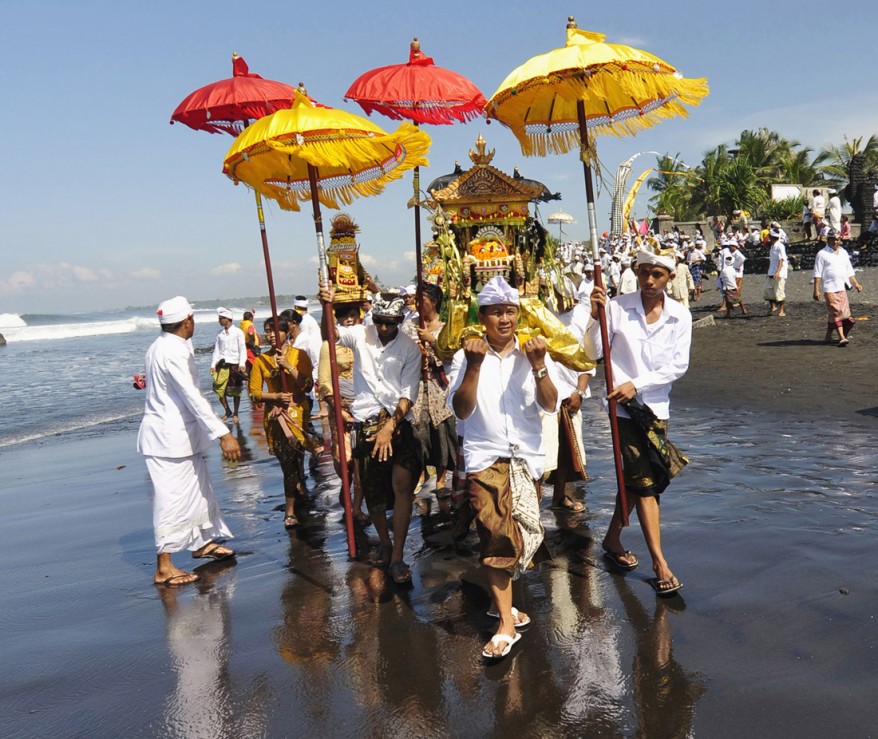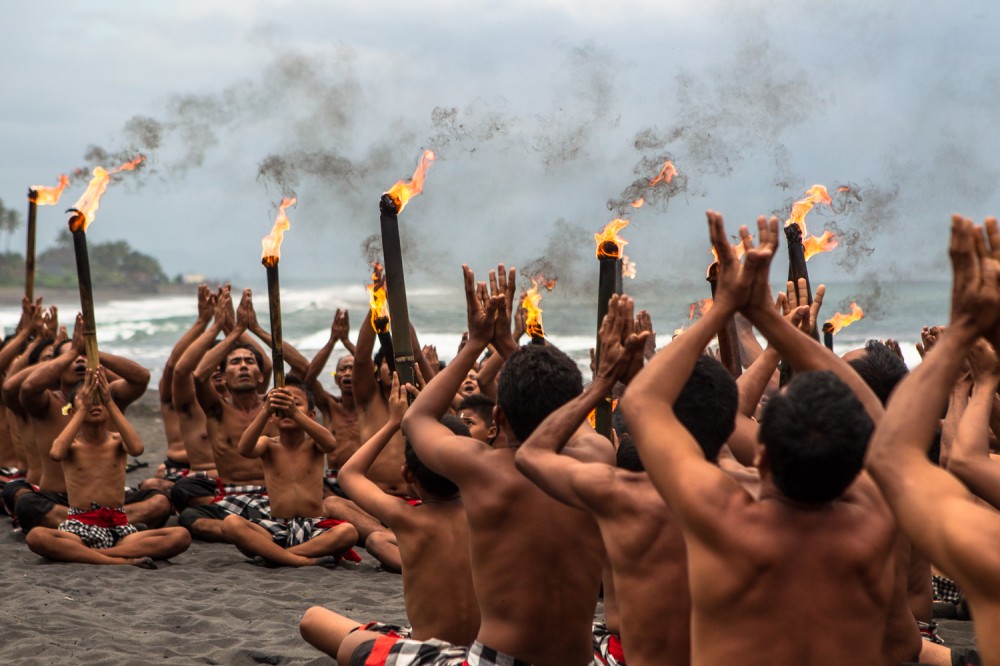The mystical rain-stoppers call forth their inner energies to divert the Rain Gods!
For those of you keen on holding a momentous wedding outdoors in Bali, or have visited the popular ‘Island of the Gods’ often, you will undoubtedly have came across the term, ‘rain-stoppers’, referring to the men who practice the art of rain diversion on the Island of the Gods.
It appears to be a cultural tradition deeply rooted among the Javanese. In the local languages, these rain-stoppers go by two different names – in Indonesian, they are known as ‘pawang hujan’, and in Balinese, they are called ‘tukang terang’.
What Goes on During These Rituals?
Before performing the ritual, the rain-stoppers need to conduct self-purification rites. Offerings, as well as incense, are other materials required for the rituals.
Did you think that the rain-stopping ceremony must be conducted within a close proximity of the actual location that the rain is to be diverted from?
Interestingly, no!
It seems that the rites can be conducted at a long distance away. There is sound logic behind this act, as being at a far distance away allows for the rain-stoppers to spot the directions that the clouds are moving towards. They then conduct the rain-stopping ritual, by directing their energies to move the clouds.
Does reading all these invoke a sense of disbelief, or skepticism?
If you are a bride or groom-to-be intent on conducting your wedding outdoors in Bali under rain-free conditions, you may want to banish any thoughts or feelings of incredulity, as we have heard that everyone involved in the event must possess complete faith in the ritual, for it to be a successful one.
Calling Upon the Rain Gods: Not Just Within Asia!
Such cultural beliefs are not limited to Asian lands and natives – numerous Native American tribes and indigenous populations in Australia have carried out practices of a similar nature over various generations. The practice, termed as ‘rain-making’, serves a contrasting purpose, as it was usually conducted to increase rainfall, so as to allow agriculture in a particular region to flourish.
I think that such traditions not unsimilar to some of the traditional practices or beliefs of other Asian cultures.
One example would be Feng Shui, a system of laws relating to spatial arrangement and orientation affecting the flow of energy. A significant proportion of the Chinese have a strong belief in this system, and the positive and negative effects of Feng Shui are often taken into consideration when they start on designing the interiors and architecture of buildings.
However, what do you think? What are your thoughts about these seemingly peculiar beliefs? Would you hire a ‘rain-stopper’ if you were having an outdoor wedding ceremony in Bali?



